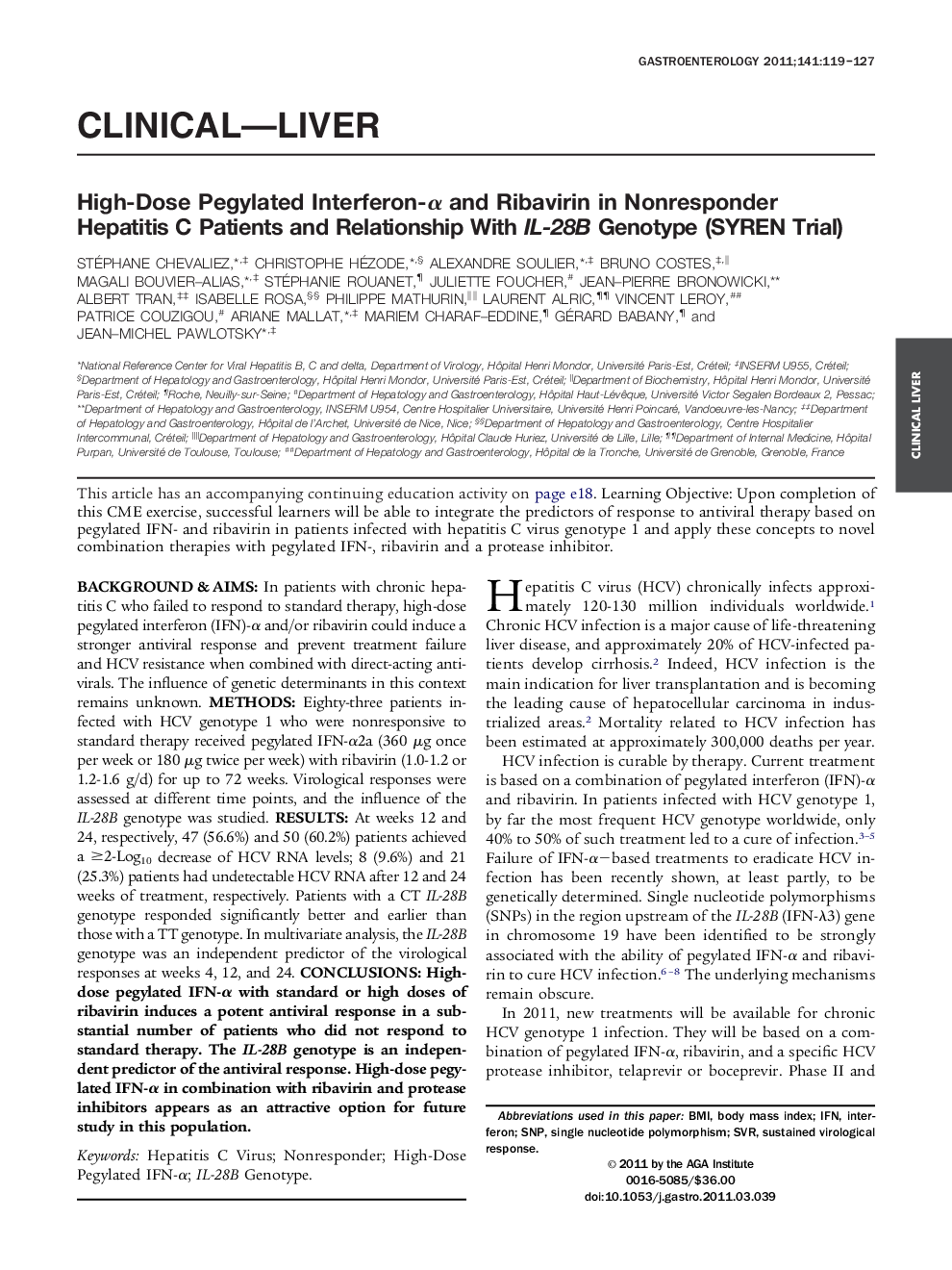| Article ID | Journal | Published Year | Pages | File Type |
|---|---|---|---|---|
| 6096716 | Gastroenterology | 2011 | 9 Pages |
Background & AimsIn patients with chronic hepatitis C who failed to respond to standard therapy, high-dose pegylated interferon (IFN)-α and/or ribavirin could induce a stronger antiviral response and prevent treatment failure and HCV resistance when combined with direct-acting antivirals. The influence of genetic determinants in this context remains unknown.MethodsEighty-three patients infected with HCV genotype 1 who were nonresponsive to standard therapy received pegylated IFN-α2a (360 μg once per week or 180 μg twice per week) with ribavirin (1.0-1.2 or 1.2-1.6 g/d) for up to 72 weeks. Virological responses were assessed at different time points, and the influence of the IL-28B genotype was studied.ResultsAt weeks 12 and 24, respectively, 47 (56.6%) and 50 (60.2%) patients achieved a â¥2-Log10 decrease of HCV RNA levels; 8 (9.6%) and 21 (25.3%) patients had undetectable HCV RNA after 12 and 24 weeks of treatment, respectively. Patients with a CT IL-28B genotype responded significantly better and earlier than those with a TT genotype. In multivariate analysis, the IL-28B genotype was an independent predictor of the virological responses at weeks 4, 12, and 24.ConclusionsHigh-dose pegylated IFN-α with standard or high doses of ribavirin induces a potent antiviral response in a substantial number of patients who did not respond to standard therapy. The IL-28B genotype is an independent predictor of the antiviral response. High-dose pegylated IFN-α in combination with ribavirin and protease inhibitors appears as an attractive option for future study in this population.
